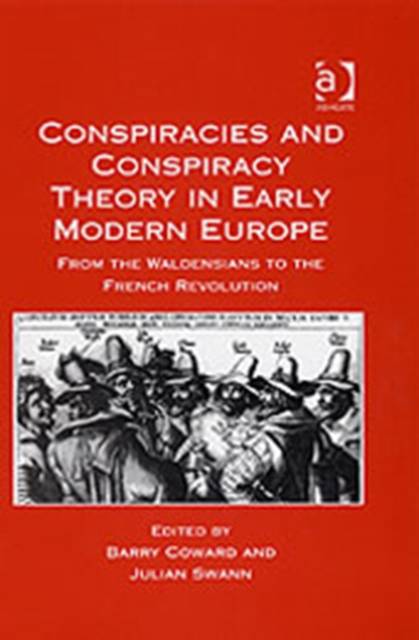
Bedankt voor het vertrouwen het afgelopen jaar! Om jou te bedanken bieden we GRATIS verzending (in België) aan op alles gedurende de hele maand januari.
- Afhalen na 1 uur in een winkel met voorraad
- In januari gratis thuislevering in België
- Ruim aanbod met 7 miljoen producten
Bedankt voor het vertrouwen het afgelopen jaar! Om jou te bedanken bieden we GRATIS verzending (in België) aan op alles gedurende de hele maand januari.
- Afhalen na 1 uur in een winkel met voorraad
- In januari gratis thuislevering in België
- Ruim aanbod met 7 miljoen producten
Zoeken
Conspiracies and Conspiracy Theory in Early Modern Europe
From the Waldensians to the French Revolution
Barry Coward, Julian Swann
Hardcover | Engels
€ 274,95
+ 549 punten
Omschrijving
For many generations, Guy Fawkes and his gunpowder plot, the 'Man in the Iron Mask' and the 'Devils of Loudun' have offered some of the most compelling images of the early modern period. Conspiracies, real or imagined, were an essential feature of early modern life, offering a seemingly rational and convincing explanation for patterns of political and social behaviour. This volume examines conspiracies and conspiracy theory from a broad historical and interdisciplinary perspective, by combining the theoretical approach of the history of ideas with specific examples from the period. Each contribution addresses a number of common themes, such as the popularity of conspiracy theory as a mode of explanation through a series of original case studies. Individual chapters examine, for example, why witches, religious minorities and other groups were perceived in conspiratorial terms, and how far, if at all, these attitudes were challenged or redefined by the Enlightenment. Cultural influences on conspiracy theory are also discussed, particularly in those chapters dealing with the relationship between literature and politics. As prevailing notions of royal sovereignty equated open opposition with treason, almost any political activity had to be clandestine in nature, and conspiracy theory was central to interpretations of early modern politics. Factions and cabals abounded in European courts as a result, and their actions were frequently interpreted in conspiratorial terms. By the late eighteenth century it seemed as if this had begun to change, and in Britain in particular the notion of a 'loyal opposition' had begun to take shape. Yet the outbreak of the French Revolution was frequently explained in conspiratorial terms, and subsequently European rulers and their subjects remained obsessed with conspiracies both real and imagined. This volume helps us to understand why.
Specificaties
Betrokkenen
- Auteur(s):
- Uitgeverij:
Inhoud
- Aantal bladzijden:
- 288
- Taal:
- Engels
Eigenschappen
- Productcode (EAN):
- 9780754635642
- Verschijningsdatum:
- 28/06/2004
- Uitvoering:
- Hardcover
- Formaat:
- Genaaid
- Afmetingen:
- 156 mm x 234 mm
- Gewicht:
- 580 g

Alleen bij Standaard Boekhandel
+ 549 punten op je klantenkaart van Standaard Boekhandel
Beoordelingen
We publiceren alleen reviews die voldoen aan de voorwaarden voor reviews. Bekijk onze voorwaarden voor reviews.









